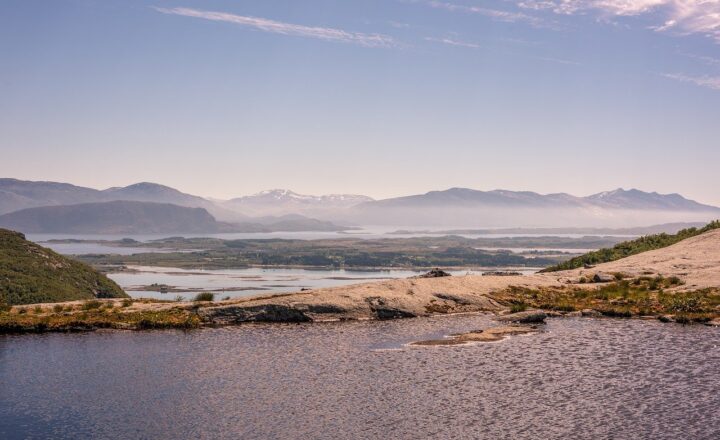
Travel has long been an integral part of human existence, serving not only as a means of exploration but also as a catalyst for cultural exchange, commerce, and personal growth. As we delve into the fascinating history of travel, we will uncover how it has transformed over the centuries, shaping the world as we know it today.
1. The Dawn of Travel: Ancient Civilizations
Travel can be traced back to ancient times when early civilizations explored their surroundings out of necessity. The early Egyptians navigated the Nile River for trade and commerce, while the Greeks and Romans developed extensive road networks to facilitate their military and mercantile efforts.
The famous Silk Road, established around the 2nd century BCE, linked China with the Mediterranean, enabling not only the exchange of goods but also cultural interactions. Traders, missionaries, and explorers traversed vast distances, often facing perilous conditions to open new avenues of connectivity and knowledge.
This period laid the foundation for travel as a vehicle for discovery, swelling with tales of adventure and cultural exchange that would inspire generations to come.
2. The Middle Ages: Pilgrimages and Expeditions
As the world transitioned into the Middle Ages, travel took on a spiritual dimension with the rise of pilgrimages. Thousands journeyed to sacred sites such as Jerusalem, Mecca, and Santiago de Compostela, traversing hostile terrains and inhospitable climates.
The Crusades (11th–13th centuries) further accelerated the movement of people across borders, driven by religious fervor and a desire for conquest. International travel was predominantly limited to the elite, with knights and nobles venturing to foreign lands in search of glory. However, this era also saw the rise of early merchant trading routes that connected Europe, Asia, and Africa, laying the groundwork for the later age of exploration.
Remarkably, despite various challenges, the Middle Ages sustained the spirit of exploration through both spiritual and economic pursuits.
3. The Age of Exploration (15th to 17th century)
The Age of Exploration marked a significant turning point in global travel. Driven by curiosity and the quest for new trade routes, iconic figures such as Christopher Columbus, Vasco da Gama, and Ferdinand Magellan embarked on extraordinary voyages that reshaped the world’s demographics.
The discovery of the Americas in 1492 and subsequent expeditions opened vast territories, leading to unprecedented cultural exchanges as well as colonialism. The advent of advanced maritime technology, such as the compass and caravel, made long-distance navigation feasible, facilitating the movement of people across oceans like never before.
However, this brave new world came at a cost, sparking conflicts and exploitation that continue to resonate to this day. The legacy of this era profoundly influenced global trade, cultural norms, and social structures.
4. The Industrial Revolution: Transforming Travel
The Industrial Revolution (18th to 19th centuries) heralded groundbreaking changes in transportation. The introduction of steam-powered railways and steamships revolutionized the way people traveled, making it more accessible to the general population.
The railway networks expanded rapidly across continents, connecting cities and facilitating commercial activities on an unprecedented scale. Travel became quicker, safer, and more affordable, leading to a surge in tourism. The idea of leisure travel emerged, allowing the middle class to explore scenic landscapes and cultural landmarks, often participating in activities like the Grand Tour.
This period also saw the foundation of organized travel, with travel agencies beginning to operate and promote excursions, thus paving the way for modern tourism.
5. The 20th Century: Aviation and Mass Tourism
The invention of the airplane in the early 20th century further transformed global travel. The first commercial flight took off in 1914, marking the dawn of air travel that would revolutionize the industry.
By the mid-century, the introduction of passenger jets enabled people to traverse continents in a matter of hours. This era led to the rise of mass tourism as travel became a more viable option for the average person. The world, once vast and isolating, felt more interconnected, enhancing cross-cultural understanding.
The establishment of global travel agencies, tourism boards, and air travel packages significantly contributed to this trend. With the introduction of conveniences such as package deals and budget airlines, travel became a staple of modern life.
6. The Digital Age: Travel in the 21st Century
We now find ourselves in the digital age, where technology has completely transformed travel once again. The rise of the internet has revolutionized how we plan, book, and experience travel. Online platforms like Expedia, Airbnb, and TripAdvisor put information and options at travelers’ fingertips, facilitating easy planning and bookings.
Social media has also played a pivotal role in shaping travel trends and inspirations, with #wanderlust and #travelgram fueling a desire for exploration among millennials and Gen Z. Furthermore, advancements in smart technology, mobile applications, and real-time updates have made traveling simpler and more efficient.
In response to growing environmental concerns, sustainable travel practices are gaining traction, with travelers seeking eco-friendly and responsible options. The future of travel is likely to embody a blend of exploration, technology, and sustainability, adapting to an ever-evolving social landscape.
Conclusion
Travel has undergone a remarkable evolution throughout history, greatly influenced by various socio-cultural, economic, and technological factors. From the dawn of exploration driven by necessity to the comfort and convenience of modern tourism, the journey of travel has been one of discovery, challenge, and change. As we continue to traverse this beautiful planet, we must honor the rich tapestry of experiences that travel offers while striving for a sustainable and responsible future.
By understanding the past, we can better appreciate the present and pave the way for future generations to explore the world unbound by borders, celebrating the diversity of cultures and experiences that make our global community truly unique.







